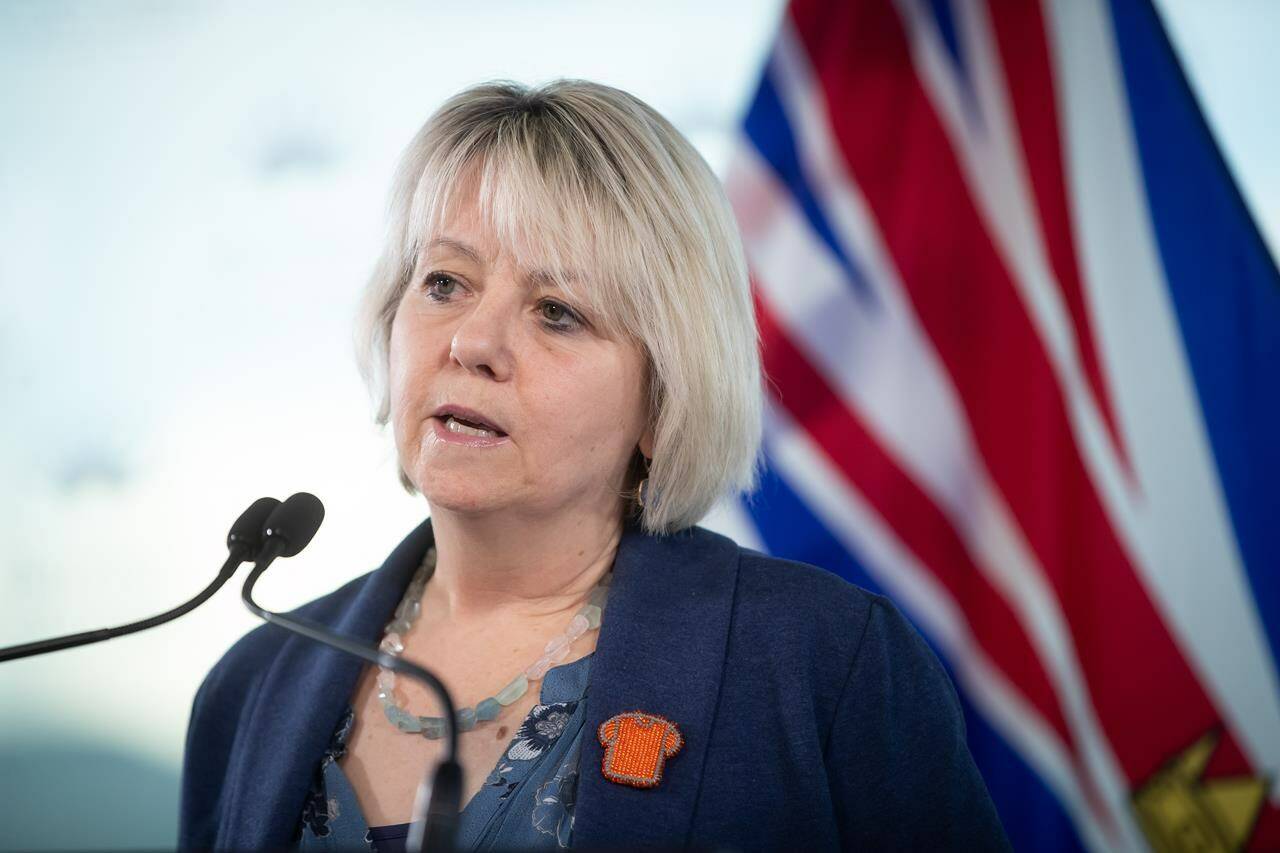British Columbians will no longer be required to wear masks in public indoor spaces, starting Friday (March 11), the province has announced.
In a news conference Thursday, provincial health officer Dr. Bonnie Henry and Health Minister Adrian Dix also confirmed that the B.C. vaccine card program will be coming to an end on April 8.
“Some settings will still require you wear a mask like health-care settings, doctors’ offices and patient contact areas,” Henry said.
Full long-term care visitation will be restored and the order restricting overnight child and youth camp and capacity limits on faith-related events will also be lifted.
Also on April 8, businesses will transition away from COVID-19 safety plans which will be replaced with communicable disease plans and the post-secondary school vaccine requirement for on-campus housing will be lifted.
School guidelines will be revised upon return from Spring Break and childcare guidelines in the province will be revised. The public health order on revised guidelines has not been released yet, but Henry said masks will no longer be required in K-12 settings.
On Monday (March 7), the public health office posted an order requiring health-care professionals to report their vaccination status to their colleges by March 31. Previously, the province said health-care professionals would need to be vaccinated by March 24, but that is no longer the case.
Instead, Henry said that the province will be taking a “measured” approach, to regulating vaccinations for health-care professionals, including industry-specific risk management plans and informed consent policies so patients will know the vaccine status of their health-care provider. Henry said vaccination may be required for some professions in certain settings, but the approach will be “tailored” to work for each profession covered by the order.
READ MORE: B.C. delays date on vaccine mandate for health-care professionals
The province recommends people self-monitor for symptoms, stay home if they’re sick, wash their hands and get vaccinated to prevent the spread of COVID-19. However, they did not outline specific measures to protect from airborne transmission of COVID-19, which is the predominant mode of infection.
Henry said the province will continue to monitor levels of COVID-19 in the community through facility-based monitoring, wastewater sampling, targetted serological surveillance and lab-based genetic testing. She noted that the province is looking toward the fall respiratory season as a time when infections could rise again.
As of March 9, 405 people were hospitalized in B.C. with COVID-19, 58 of whom are in ICU. The province reported 274 new cases and 14 new deaths.
READ MORE: 14 more British Columbians die of COVID, hospitalizations drop near 400
@SchislerCole
cole.schisler@bpdigital.ca
Like us on Facebook and follow us on Twitter.

